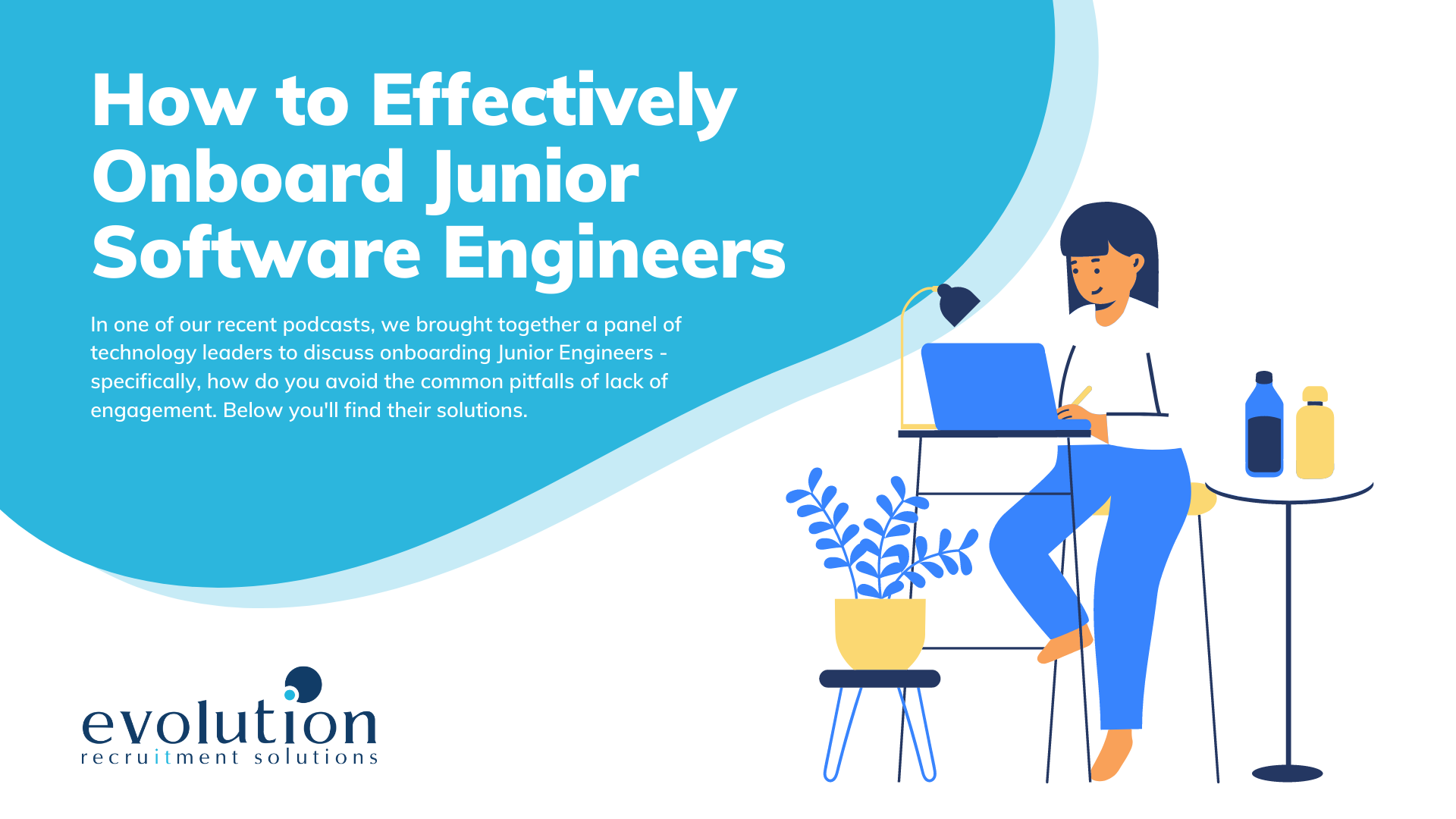
In one of our recent podcasts, we brought together a panel of technology leaders to discuss onboarding Junior Engineers – specifically, how do you avoid the common pitfalls of lack of engagement. Below you’ll find their solutions.
Solution 1: Give them a Buddy
Solution 2: Be an Empath
Solution 3: Work on your Onboarding Process
Katarzyna Kaduk, Engineering Manager at Klarna believes in finding a buddy for her new starters. Listen below for more information.
I think this is a very, very popular problem we are now facing. And I’ve been also in the situation when I’ve been onboarding juniors while working remotely. One thing which particularly worked for my team was having a buddy. So someone really dedicated to the new person in the team, where they could spend a lot of time with where they can go with all the questions that new joiners have. Because, of course, when you’re working next to each other, if you don’t understand something and you work with code you just ask the person sitting next to you to have a look. So we try to have the same situation while being remote. Where you have someone who is dedicated to all the questions, and this is part of their work time. So it’s not only if you can help me but it’s, it’s their job to help out the new joiner. This was one thing that I think really helps out.
Bhawna Gulati, Engineering Manager at Netent suggests that the key to onboarding remote junior engineers effectively lies with empathy. Listen below for more information.
At the end of the day, we are all humans. So it is very, very important to make the person feel welcome. Now more than ever, that we are stuck in our own homes not sitting physically next to each other. So things that I have tried in my team have to have a conference page just for onboarding, where we have a structure of day one, day two, day three, how do you go ahead with it?
Then, I personally take the time to either have direct conversations with that person or if I’m not able to, for certain reasons, I make it a point that I ping that person and just ask, how are you doing? Nothing else? No work? No other discussion? Just plain simple. How are you? So I totally believe in being an empath. As leaders, it is most important than anything else. If you want to motivate people to work, it is more important to engage them not to you know, put pressure and ask them to do different tasks.
Alberto López, Director of Engineering at Acast suggests focusing on building out your onboarding process to cover all basis. Listen below for more.
if you have to join a company and actually feel that you have to hunt everyone to get to understand the systems, the people, the organisation, the processes and everything, it’s, it’s, it’s a bad thing. So I think, in order to do this, I think the first of all, is to have a very clear onboarding process, right? That works flawlessly, regardless remote or not remote. And then, when we’re talking about remote, and regardless, again, about the seniority levels, I think, at the end of the day, we are all people, and for me people’s first and so I would spend the first couple of weeks only, you know, building kind of relationships. So I would probably if I know that somebody’s joining my team, I will probably encourage my team members to you know, organise different type of meetings like icebreaker and like, there are many multiple different types of games that you can utilise, to make to gamify the way of you know, getting to know each other and such. I personally play one I don’t remember the name of, but it was a card game, where it’s just about fingers or landscapes or anything you needed to reflect on. Or say something about your life that was reflected on the car. And then you were pairing and every five minutes you were rotating. So then you get to know people a little bit more on a personal level.